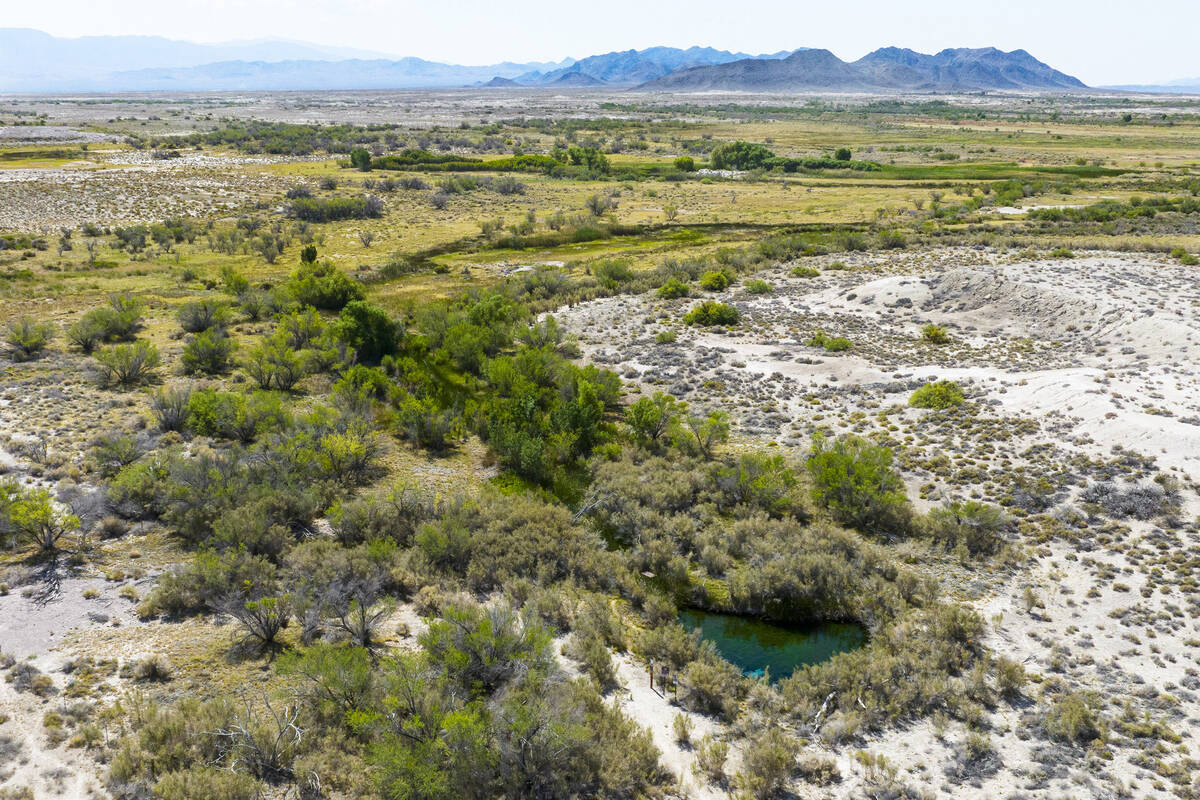BLM says it erred in approving lithium drilling near Ash Meadows
The Bureau of Land Management has formally paused a plan to drill for lithium near a desert oasis full of federally protected species, saying the project likely would disrupt the underground waters that feed the refuge.
In a letter rescinding the agency’s previous approval, the BLM said a plan from Canadian mining company Rover Metals to conduct exploratory drilling for lithium just outside of Ash Meadows National Wildlife Refuge was likely to disturb the region’s groundwaters and cause “significant impacts” to the endangered and threatened species that live inside the refuge.
“BLM cannot be certain without more information from the operator that it could engage in drilling at this site without causing unnecessary or undue degradation,” the agency wrote.
The agency’s prior approval, the BLM wrote, “was in error.”
Rover Metals did not respond to requests for comment Thursday.
The BLM’s decision comes after substantial pushback from conservationists and rural residents, including a lawsuit filed this month that sought to stop the drilling project before it could get underway.
Last week the bureau told Rover that it would require a full environmental review before the plan could move forward. But the agency’s lawyers with the Justice Department declined to confirm that decision, which opponents said brought into question whether the project was actually on hold.
The BLM’s Pahrump office received a memo from The Nature Conservancy on June 23 raising concerns about how the proposed drilling could affect the groundwater in the area, according to the letter.
Rover acknowledged in its exploration notice that all of its drill holes likely would tap into the groundwater aquifers.
The U.S. Fish and Wildlife Service also raised concerns about the drilling project because of its proximity to the northern springs of Ash Meadows, according to the BLM’s letter. Specifically, the fish and wildlife agency pointed to potential impacts on water quality and spring discharge inside the refuge and the potential impact that the drilling could have on the groundwater connected to those northern springs.
“Based on this record, BLM has concluded that the operator cannot prevent unnecessary or undue degradation,” the agency wrote.
Rover Metals was nearing the start of a plan to drill 30 boreholes as far as 300 feet deep in an area located just north of Ash Meadows, an area that the company said was rich with lithium in the underground clay.
Some of those proposed drill sites, though, sit less than 2,000 feet from Fairbanks Spring on the refuge’s northern tip.
The Center for Biological Diversity and Amargosa Conservancy sued the BLM and Interior Department this month over the project, arguing that drilling so close to the refuge’s northern springs likely would impact the underground waters that feed the refuge, and likely devastate the endangered species that call those springs home.
Patrick Donnelly, the Great Basin director for the Center for Biological Diversity, called the rescission “a great victory for our community, for the wildlife and plants that live here and for the waters we all need to survive.”
“Our advice to Rover Metals is don’t let the door hit you on your way out. We’ll be watching and we won’t ever give up our fight to save Ash Meadows,” Donnelly said in a statement.
The decision by the BLM means that Rover will need to submit a plan of operation to the agency and complete an environmental review before it can begin exploratory drilling.
Rover has the option to appeal the BLM’s rescission.
Contact Colton Lochhead at clochhead@reviewjournal.com. Follow @ColtonLochhead on Twitter.


















